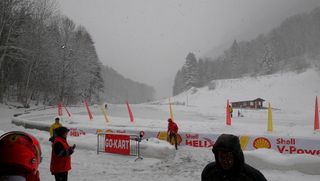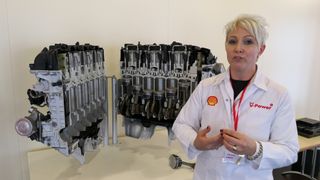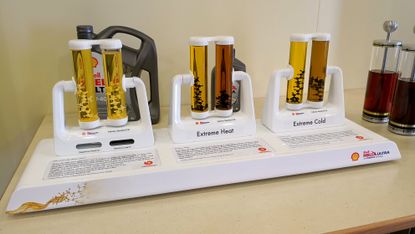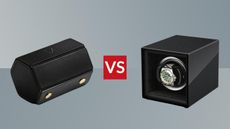Winter might be a crucial time of year for making sure your car is in tip-top condition, but good engine maintenance is vital all year round. However, most of us just want our cars to work, so we can get in and go whenever the mood takes us. A decent standard of basic maintenance is the secret and central to this is having the right oil, and enough of it so that your engine is working at its optimum efficiency.
That’s even more critical if you’re in a rather more extreme environment than the traditionally pretty balmy shores of the UK. Somewhere like Switzerland, for example, where sub-zero temperatures and snow and ice abound, is a location that demands you have your vehicle at the peak of lubed-up fitness.
What better location then to sample the power of today’s advanced fuel and oils than the snow-covered Seelisburg driving experience track, not far from Lucerne. Perched high up in the mountains, this was a perfect place to see just what Shell does with its expansive range of fuels and oils in order to keep all manner of different vehicles moving.

When T3 arrived on site Dr Jochen Lach, Shell Motorsport Lubricant Development Project Leader, was keen to underline the importance of oil, particularly synthetic oil, in keeping the wheels of our cars (and karts) turning in these extremes.
“You’ll see numbers on all of our products that refer to viscosity,” he explained. “So the first number (Shell Helix Ultra 5W-40 for example) that you see on the bottle is telling you about the viscosity of the oil in cold conditions, like today. The lower the W number the better the oil's cold temperature or cold start performance will be.”
“That’s important in harsh conditions on a day like today, because when you start your engine you want the oil to be as fluid as possible, so that it reaches all of the parts of the engine that need to be protected. When you turn the key you don’t want an engine to turn with little or no oil on the moving parts. So, with a low viscosity oil you’ll be able to lubricate those moving parts much more rapidly.”

Dr Lach then stated his belief that their range of Shell Helix fully synthetic oils were able to perform in adverse conditions much more favourably than rival products. This fully synthetic formulation offers maximum protection in very hot and extremely cold climates, and severe driving conditions such as the sort of ice-karting tracks we are next to in frequently sub-zero Switzerland. This is all down to the chemical make-up of synthetic lubricants.
When fresh off the shelf, one oil looks much like another and the differences in quality are hard to spot. However, based on the test samples that Dr Lach had on show, the degradation of inferior oils is much more rapid even after only a little use. Alongside extreme cold, the effects of too much heat on lower grade products led to discolouring that was clearly visible.

Valeria Loreti spoke to us next, who is a Fuels Scientist for Shell, and is just one of the professionals who works on developing and evolving fuels such as Shell’s V-Power range. She thinks spending that little bit more on a premium fuel product, alongside oil, is definitely worth it. “There’s a lot of knowledge that has gone into the product and it’s not just a fuel per se,” she said. “It’s a very long process where we invest a lot of time and know how into developing products.”

“It’s not just about understanding the basic engine combustion chemistry but about how we can understand where the next engine technologies are going. We have a big team of people, 180 around the globe, that are all really dedicated to developing new fuels and oils for customers. Developing a new fuel can take up to five years and sometimes even more so it is a huge investment.”
“As a chemist I’m always looking out for new ways of combining things to see if there is a better method for producing fuels, but of course this takes a long time just to see if the idea is doable at all. Any new product needs to be specification compliant too, because we are selling products across the globe and need to follow the rules and regulations. There are plenty of fancy components we could use but aren’t allowed to, simply because of that fact.”
“And, with ever changing legislation, we are always looking to improve our products, which is why Shell V-Power keeps on evolving and getting better, year on year.”









